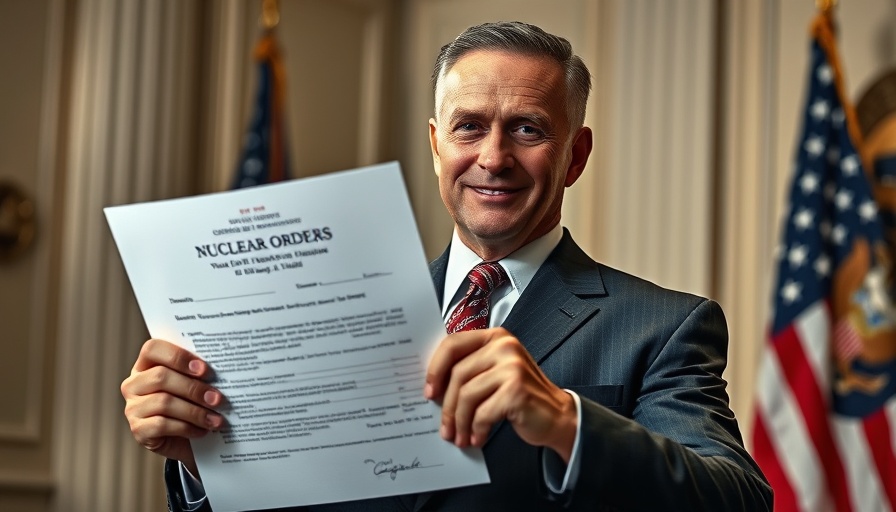
Trump's Nuclear Agenda: A Shift in Energy Policy
In a recent press conference, President Donald Trump introduced his ambitious nuclear energy orders, aiming to reshape the energy landscape while simultaneously addressing economic concerns surrounding international tariffs. This unprecedented movement towards nuclear energy comes at a time where the American economy is navigating uncharted waters, especially with increasing global tensions, particularly with the European Union (EU).
In 'Trump signs first of nuclear energy orders,' the discussion dives into substantial tariff threats against the EU as a backdrop for a transformative energy policy, sparking deeper analysis on our end.
Understanding the Context of Tariffs
In his speech, President Trump did not shy away from discussing the 50% tariffs on the European Union, asserting that these measures are aimed at protecting American jobs and promoting local manufacturing. Historically, tariffs have served as tools for economic protectionism, often producing mixed results. While they may result in the immediate safeguarding of local jobs, they can also lead to retaliatory measures from affected countries. The prospect of a trade war looms large as the Trump administration prepares to implement these tariffs alongside the push for nuclear energy expansion.
The Broader Implications of Energy Policies
Transitioning towards nuclear energy poses significant challenges and opportunities. By advocating for American-built nuclear facilities, Trump’s administration highlights a desire for energy independence. However, increasing reliance on nuclear power must consider environmental safety, waste management, and community acceptance. As developing nations across Africa gear up for similar advancements in energy, they must take note of the complexities that come with nuclear energy implementation.
Impacts on American Corporations
Trump's controversial tariffs also extend to tech giants like Apple, with the imposition of a 25% tariff for overseas production. This policy risks alienating American companies while provoking international relations further. As depicted in the press briefing, the administration aims to bolster American manufacturing, yet it exposes significant contradictions—forcing companies to choose between higher costs and local production which may not be financially viable.
Conclusion: A Call for Constructive Dialogue
As the nuclear energy orders set the stage for a significant shift in policy, readers are encouraged to pay close attention to how these developments unfold—both in terms of environmental impacts and economic ramifications. The discourse sparked by Trump's tariffs highlights the need for constructive dialogue within international trade contexts, especially for countries like those in Africa engaging in expanding their own energy sectors. Awareness and proactive engagement are crucial for navigating the changing global landscape of energy policy.
 Add Row
Add Row  Add
Add 




Write A Comment